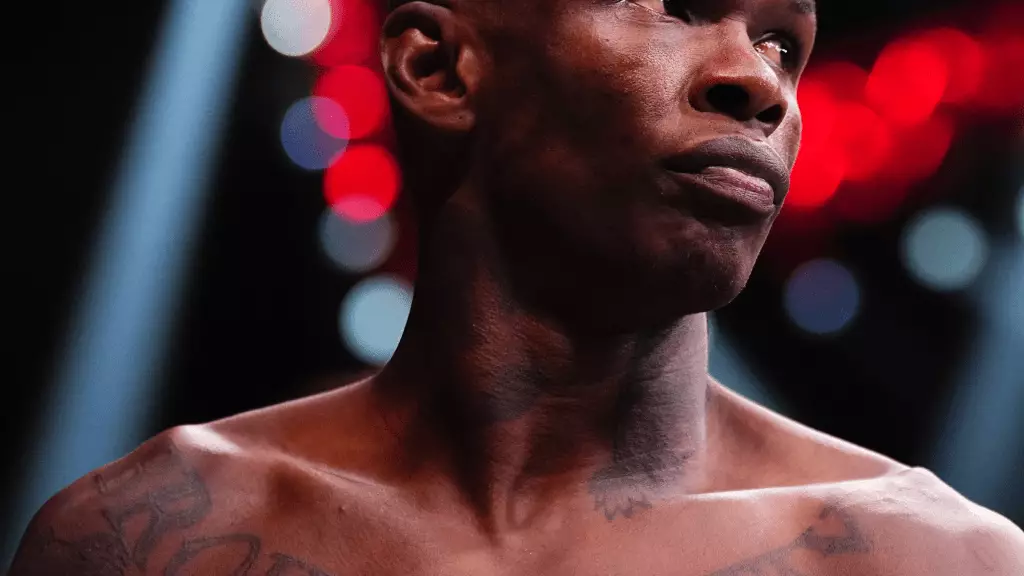In the world of mixed martial arts, few fighters have captured the imagination of fans quite like Israel Adesanya. Once heralded as a dominant force in the UFC, Adesanya’s recent trajectory raises questions about the longevity of success in this brutal sport. After suffering his third consecutive loss—this time to Nassourdine Imavov at UFC Fight Night 250—Adesanya’s record now stands at 24 wins and 5 losses, a stark contrast to his previously unassailable reputation. This downward spiral underscores a reality often overlooked: the psychological and physical toll of being at the pinnacle of the sport.
Din Thomas’ observations regarding Adesanya’s struggles echo the historical narrative of many UFC veterans. Champions often face unprecedented levels of scrutiny, and their losses carry a weight far heavier than those of less established fighters. This phenomenon calls to mind other notable fighters like Anderson Silva and Chuck Liddell, both of whom experienced significant declines despite their legendary status. Thomas succinctly highlights that many champions find themselves grappling with the expectations that come with greatness, a burden that can lead to a swift and harsh downfall.
Magnified Losses: The Burden of Expectations
Adesanya’s performance has been a subject of intense debate, with observers noting that his losses are heavily scrutinized compared to those of mid-tier fighters. Thomas notes, “When you make it to the top, your losses are always magnified.” This perspective is critical in understanding the mental and emotional challenges elite athletes face. The psychological impact of defeat in front of millions can be overwhelming, detracting from their performance and altering their approach inside the cage. While the pressure to perform will always exist in competitive sports, the unique spotlight on champions often exacerbates the fallout from their defeats.
As Adesanya continues to navigate this turbulent phase in his career, questions about his future and potential strategies for recovery arise. The sport is known for its unpredictability, and history shows that champions can often reinvent themselves or find new paths after a setback. Analyzing the careers of other fighters offers potential roadmaps. They have often responded to adversity by refining their techniques or changing their training regimes—an adjustment process critical for continued evolution in such a dynamic field.
Ultimately, the narrative surrounding Israel Adesanya serves as a stark reminder of the human element inherent in combat sports. The journey through triumph and adversity is a universal experience shared not only by athletes but by individuals in various walks of life. As Adesanya seeks to reclaim his position in the UFC’s middleweight division, it is essential to remember that even the most accomplished can face setbacks. The sport remains a merciless arena, but resilience, humility, and adaptability are key traits that can enable a comeback. Therein lies hope for both Adesanya and others in similar positions: the ability to rise again is often rooted not just in talent, but in the indomitable spirit of the fighter.

